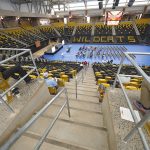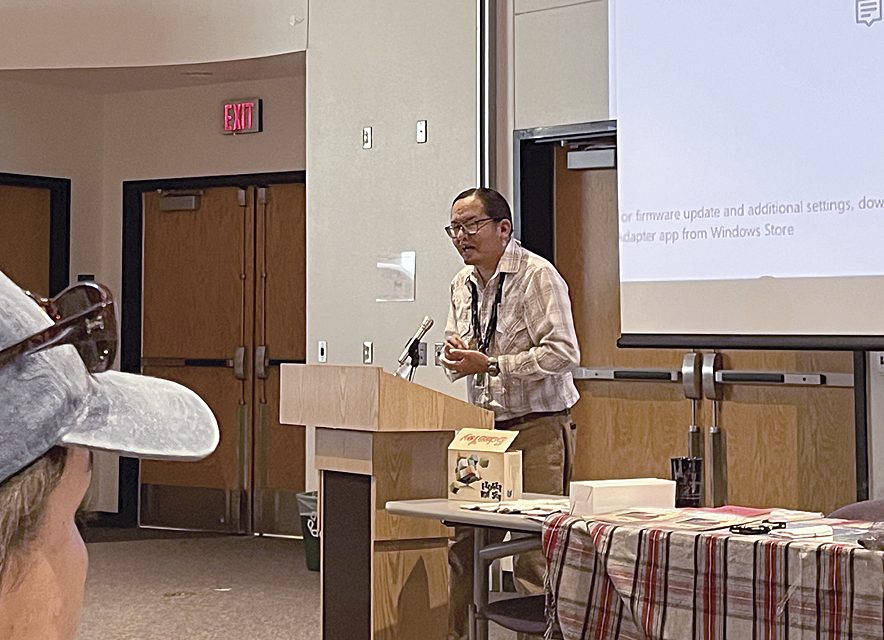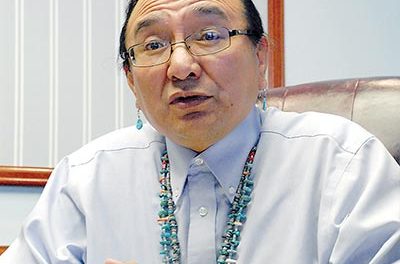
Doo jináł’į́į da: Beginning of Navajo New Year, day of the solar eclipse is Oct. 14

Navajo Times | Kianna Joe
Hataałii Lawrence Begay speaks to an auditorium full of eager listeners on Saturday at the University of New Mexico Gallup’s Calvin Hall Auditorium. Begay talked about how one should go about staying reverent during an eclipse.
GALLUP – A hataałii recently shared the dos and don’ts for the solar eclipse and how to celebrate Navajo New Year. One notorious “don’t” for any eclipse among Diné is not to look at the eclipse.
But Lawrence Begay, a hataałii from Blackhat, New Mexico, said many Diné don’t know the other “don’ts” and do not know what they should be doing.
Begay is Táchii’nii, born for Honágháahnii. His maternal grandfather is Tsi’naajinii, and his paternal grandfather is Tábąąhá.
The auditorium at Calvin Hall UNM-Gallup was filled with eager youth and elders who brought their list of questions they hoped to get answered at the special presentation.
Dos and don’ts
Other “don’ts” include not drinking water or liquids and not eating during the eclipse. While for adults, that rule may seem easy, for pregnant women, mothers, and young children, that rule looks like a gray area.
Begay said there was an eclipse when his niece was born while she was still an infant. His family followed traditional rules, and his niece cried for food. After a while, Begay’s mother no longer wanted to hear her granddaughter crying, so she had her daughter feed her baby.
Begay said after his sister fed her baby during the eclipse, ailments appeared that were tied back to his niece eating at that time.
Begay encouraged everyone to eat and drink before the eclipse to ensure no eating or drinking occurs during the astronomical event, especially for pregnant women, mothers, and young children.
“When we don’t do those things (follow traditional rules), we tend to suffer the consequences. We can get sick mentally, emotionally, physically, spiritually, we harm ourselves,” said Begay.
If someone doesn’t follow the rules, Begay said they may have to get certain ceremonies performed to fix the wrongdoings.
“Out of reverence (of the solar eclipse), we don’t lay down, we don’t sleep, we don’t eat or drink anything, we don’t wander around outside because during this time we don’t want to be taken by the sun or moon,” said Begay.
Begay said that some families cover their windows, sit upright, and stay alert, but every family has different traditions.
Additionally, no ceremonies are to be conducted during the eclipse. Begay said depending on certain clans, people have their way of giving an offering and prayer after the eclipse is over.
“This is all for renewal. Renew everything so that you can look forward to prosperity, good things, pray for good things again,” said Begay.
Read the full story in the Oct.12 edition of the Navajo Times.







 Highway 264,
Highway 264, I-40, WB @ Winslow
I-40, WB @ Winslow